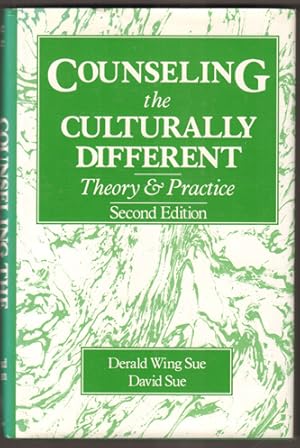Continuing the work started in the original edition, this revised and updated volume explores issues relevant to the culturally different in the United States and cuts across all ethnic/racial minorities. The second edition is divided into three parts covering issues and concepts in cross-cultural counselling, counselling individual populations, and critical incidents in cross-cultural counselling. Specifically, the conceptual framework is provided to aid in understanding the minority experience in the USA, the role counselling has played with respect to larger societal forces, and the practice of cross-cultural counselling in mental health agencies, industries, public schools and correctional settings. Additionally, specific minority groups are given individual treatment to contrast similarities and differences. Major amendments to this edition (approximately 80%) are the result of current changes in the field and the authors' rethinking of earlier models of multicultural counselling.
Here is the long–awaited revision of this bestselling reference on multicultural counseling, the most widely used and critically acclaimed text published on the topic. The first book of its kind, Counseling the Culturally Different changed the thinking in multicultural counseling, setting the tone for a whole generation of psychological counselors across America. It has maintained its status as a classic in the field and is now the standard reference for nearly all courses in minority mental health and treatment. This Third Edition is completely revised and updated, continuing the legacy of scholarly excellence combined with a provocative, practice–oriented approach to the field.
Authors Derald Wing Sue and David Sue have reorganized the book to be consistent with new developments in research, theory, and practice. Major additions include a more inclusive definition of multiculturalism, the most recent statistics on the changing complexion of society and the implications for clinical practice, and a discussion of the culture–bound basis of the ACA and APA Code of Ethics and Standards of Practice. The authors continue to use a large number of clinical case studies and real–life examples to illustrate the concepts of multicultural counseling and therapy.
This vital resource also features:
- New chapters on white racial identity development; non–Western and indigenous methods of healing; and counseling women, gays/lesbians, the physically challenged, and the elderly
- Expanded coverage of multicultural family counseling/therapy, racial/cultural identity development, and becoming multiculturally competent
- Individual chapters on counseling African Americans, Asian Americans, Latino/Hispanic Americans, and Native Americans
Combining a sound conceptual framework for multicultural counseling with proven therapeutic methods for specific groups, Counseling the Culturally Different remains the best source of real–world counseling preparation for students and the most enlightened, influential guide for professionals.
